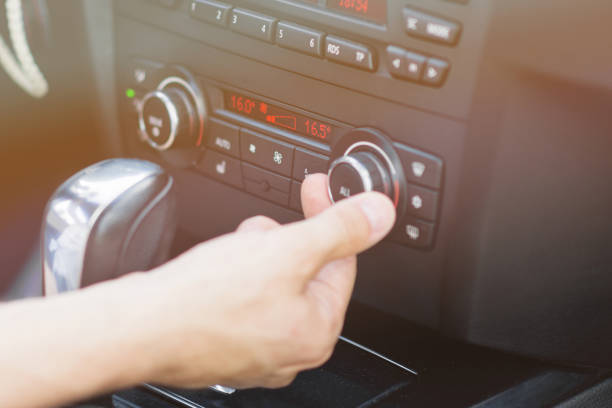
To some car owners, not driving with a good audio companion is likened to being imprisoned, so to them, listening to good undistorted music or radio sound while on the move is as important as embarking on the trip. Choosing car amp for speakers can be daunting but first;
Table of Contents
Should the blame be on the speaker?
For bad audio performance, some car owners erroneously pass the blame on their speakers. Should this be so? While we may agree in some cases, generally, imperfections in sound production are being caused by failure of either the speaker manufacturer to install good amplifier in the speaker when built or the car owner to procure a standard one for his own car use.
As lovely as it is to enjoy a clear and undistorted music while driving, amplifiers can seem like they’re all much of a needless item, after all, they are usually an innocuous looking metal box with a series of delightfully tactile knobs and switches with little or no relevance to sound perfect production.
Really? No wonder some do ask; do I really need an amp affixed to my car speakers? What type do I need? How do I know the best and choose it for my car? These and so many other salient points are what we set out to review here under. Come along with us.
Do I really need an amplifier for my car speakers?
Some speakers come with in-built tweeters that can work as perfectly to produce desired sound on the average. If you have such functional ones that come with your car speaker, you can do without an amplifier for real.
One of the good reasons why amplifiers could be installed in your car is to boost its power supply towards enhancing quality sound production for your satisfaction. Amplifiers boosts, supports and release extra power needed for quality, louder, clearer and undistorted sounds from your speakers.
How can I Choose good amplifier for my car speakers?
If your car speakers do not come with amplifier and you are grossly dissatisfied with the sound production and its entire output then you probably will need to get a good set of external amplifiers hooked up to your existing sound system to improve your car’s audio quality and resolve the issue once and for all.
It is important you pick an amplifier that can deliver double strength of power compared to your speakers programmed power rating. This means that a speaker with a “nominal impedance” of 8 ohms and a program rating of 350 watts will require an amplifier that can produce 700 watts into an 8 ohm load.
Buying an amplifier as a car owner who just want to upgrade the speakers or as a new driver who just acquired his first car and care for good music while you drive, you have certain important factors to consider which may range from (apart from your budget), the types you desire, your type of speakers and the specifications of the amplifier itself. Here is our guide for you.
Power supply: Insufficient power supply may damage your speakers if you keep using them with inadequate supply. You evaluate your speakers’ RMS (Root Mean Square) to determine the adequacy or otherwise check your audio system power requirements.
We recommend at least 75 – 150 percent RMS value for your amplifier. If you desire to use a subwoofer together with factory-fitted speakers in your car, then you might need a multi-channel amplifier that will bridge the two channels for the subwoofers or get an independent mono-channel unit.
Getting a mono-channel unit for the subwoofers separately will be a better option for you if you are the type that values quality output from your sound box. It is pretty better, in a nutshell, to buy your speakers first then the amplifiers for compatibility reasons.
Number of channels: Amplifier models come in varying number of channels which are sources of power to your speaker and choosing the right one to meet your audio need is important. Therefore, if your audio system is such that comes with more than one speaker units, get a multi-channel amplifier to give you the desired output.
Subwoofers that require strong power supply must be provided with a stand-alone channel for better performance while a mono amplifier delivers less heat emission and low power consumption.
Others features are good tone control and sound filters which allow you to adjust the bass and sound quality as you desire. These are however available only on high-end amplifier models.
For mono channel designs, you can get your amplifiers in two, three, four or even six-channel formats designed in an A and AB class for clear sound quality. Their energy efficiency rating is however sub-standard compared with the 2-channel amplifiers which can suitably power up to two speakers independently connected to the subwoofer.
Should space be a challenge in your car, you will be okay with the 3-channel amplifier. But if rich sound from a fully efficient amplifier is what you desire, then consider other available options.
A 3-channel amplifier gives you advantage of two amplifiers in one with the two channels being plugged into the speakers and the other supplying power to the subwoofer.
The major determinant of your choice should be the number of speakers or subwoofers you desire to have in your car.
The price: How much you are willing to pay is another factor. There are some that cost so high while some are budget friendly. Prices varies in relation to available brand and the specification you desire to have installed.
Amplifier class: Amplifiers are in different categories and classes depending on the electronic circuit. It is crucial because it determines heat generation, the sound fidelity and energy efficiency.
A-class amplifiers provide superior sound quality but are not recommended due to large amount of wasted energy and high heat being generated.
Class ‘B’ amplifiers deliver much better than class ‘A’ specification rating on efficiency level. However, the major setback is distortion occasioned by inter switching of transistors.
Trusted Brands: There are countless numbers of companies selling various brands of amplifier in the market. It is our advice that you buy your amplifiers from reputable company, even if it means spending a few extra dollars just for the safety and quality.
Your source of purchase and the wiring kits that come with your amplifier is another important decision you need to take. You can buy your amplifiers either online or from any local store.
You must also ensure that you get your trusted brand from an authorized dealer in order not to compromise the quality of the product and to enjoy the available manufacturer’s warranty. Names of authorized partners are listed on most manufacturers’ website for your convenience.
Compatibility: Before making a purchase, it is necessary you check how compatible is the amplifier with your car audio speaker system. This cannot be compromised as the head unit of the audio component connects to the amplifier plugged into your car speakers.
Size and Space: Some car owners mostly concentrate on amplifier specs when buying with little or no consideration for vehicle size and space availability.
If you have your SUV fitted with two small speakers will affect the quality of the sound. So considering and allocation appropriate space for this gadget is as important as getting the correct type and model to install.
How many watts do I need for my speakers?
Amplifier power is one of the most misunderstood questions facing audio consumers. That is, how many watts do we need? The short answer is, if you crave high volume, have wild parties or a huge room, the more, the merrier.
Let us be clear on what amplifier power provides: it defines the upper limit of how loud your speakers can play without distorting. So if loudness is a big priority, buy as much power and the biggest speakers you can afford; if you listen at fairly moderate volume, don’t worry about your receiver or amplifier’s power rating.
Amplified speakers will need about 50 watts RMS per channel so plan on 250 to 500 watts RMS for bass as your subwoofer alone might absorb close to 200 to 300 watts RMS of power if affixed.
Overall, you will need about 1,000 watts RMS for your sub if you have a channel that need a 100 watts RMS. If you like loud uncompressed music and your speakers are 90dB efficient, 200 Watts is likely plenty of power for you. If you only listen to light classical, jazz and do not expect them to rock the house or car, 50 Watts is adequate. Higher efficiency speakers, like horns take very few Watts.
Should speaker wattage be higher than amplifier?
For effective performance yes. Someone may use between 20 to 50% above the speaker’s maximum power rating as a rule but that is not the max amount of power it can put out; its dynamic power could go much higher. So an amp rated at 400 Watts RMS should have a dynamic power rating of 500–600 Watts if it’s really good.
What amplifier do I need for 4 speakers?
Most external amplifiers can power more than one speaker per channel. For example, a 4 channel amplifier may be able to power up to 8 speakers. In fact, if you wire it correctly, the amplifier will deliver equitable sound with better output.
In any case for a four-speaker requirement, you will make do with a two-channel amplifier for optimum sound production. There are two ways to wire four speakers to a two channel amplifier it may be in series or in parallel. Amplifiers have both a minimum and a maximum level of impedance and it is important to stay within these limits.
Does amplifier improve sound quality?
A better amplifier will make your speakers play louder and sound better, but it will not make bad speakers sound like good speakers.
Many speakers have a “maximum wattage rating” at their back. High-end amplifier companies built amps with more than 1,000 watts to which you could plug in a $50 speaker into it with no problem.
What happens if amplifier is too powerful for speakers?
Two problems can occur. One you can notice dimming lights when the bass hits if your charging system is really inadequate for the amp you are running, or two, you can get severe voltage drops that will fry the amplifier completely.
Conclusion
We hope our article have addressed choosing car amp for speakers and most of the questions you probably are agitated with prior to visiting our site. If you have a comment or question, drop it in the box below, we will be glad to hear from you,



